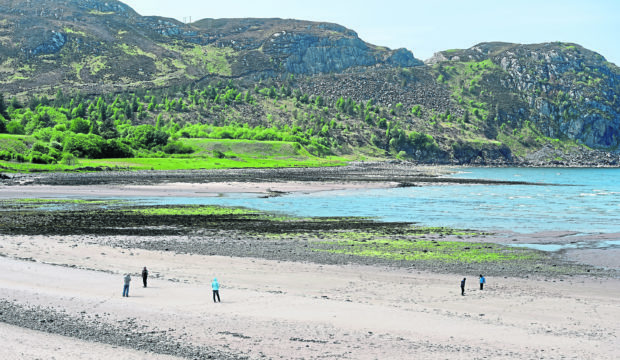Hillwalkers have been warned of the risks of dehydration and wildfires following the continuing hot weather.
Heather Morning, the Highland-based mountain safety adviser with Mountaineering Scotland, said she has never experienced such dry conditions north of the border, adding: “It has been great to see so many people inspired to walk and climb in our hills and mountains in this hot and dry spell. But sunshine brings its own problems.
“If you were out on the hill last weekend you may have found conditions pretty hard going and unpleasant for walking up hill – sweating profusely and trying to avoid being the next meal for the influx of horse flies or ‘clegs’ which seem to be thriving this season in the hot, dry conditions.
“I do not remember conditions underfoot so dry. Bogs are dry, peat is cracking, burns are very low or non-existent and small lochans are either dry or disappearing at an alarming rate. Vegetation on much of the higher ground is parched and lifeless.”
And forecasts for the week ahead suggest that most areas of Scotland will get no rain for at least the next week.
Ms Morning warned: “Hydration is a real issue and the normal one litre of fluid I carry is just not adequate. At the moment I’m carrying two litres, replenishing on the hill if at all possible and ensuring that I drink a lot of fluid both before and after my days out on the hill.
“Protecting yourself from the sun and ensuring you drink enough liquids is about more than your health – it also makes the difference between having a miserable time and enjoying a great day out in the mountains.”
The conditions also mean the fire risk will increase, with tinder-dry vegetation and dry peaty ground.
Grant Moir, chief executive of Cairngorms National Park Authority, added: “A smouldering cigarette or one campfire ember can ignite in a gust of wind and even the smallest fire can spread uncontrollably and devastate entire hillsides.
“Livestock, wildlife and protected woodland can all be devastated by these fires. The message is quite simple – do not light a fire during long dry spells of weather.
“We want people to enjoy the Cairngorms National Park but not at the expense of our wildlife and the important habitats that supports it.”
